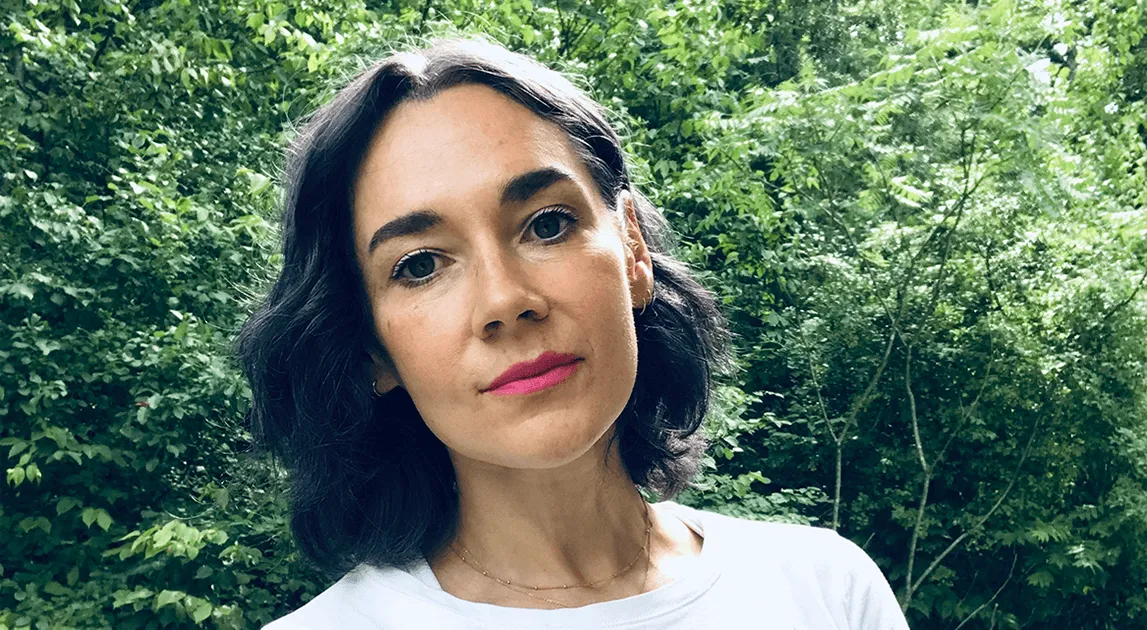Meg Little Reilly ’01 buzzed around Washington, D.C., before she returned to Vermont a few years ago, moving from work in the nonprofit sphere to the Obama administration.
What she saw along the way — “the people who are making things run well” — inspired her latest effort: Project14, a new civic engagement initiative coordinated by the University’s Center for Research on Vermont with support from the Office of Engagement. The Geography graduate is back on campus helming the project and wrote about it recently for Times Higher Education here.
“At the national level, everything could feel a bit abstract and removed,” Little Reilly said. “And you can’t ever forget, when you’re doing this work at the ground level, that real people’s lives and livelihoods and well-being are at stake. I have a deep appreciation for it.”
The project launched this summer but began in earnest this fall. Students who apply for internships are placed in local government offices across the state, working to help town officials connect with their communities.
Some of the services provided by interns include revamped town communications, web design and more.
“I'm really excited by the things that students have told me they're passionate about,” Little Reilly said. “Everyone has mentioned the environment so far. Everyone is interested in working with people who want to engage with their communities, livable cities.”
At its core, the effort is about ensuring colleges remain pillars of a healthy democracy, something desperately needed now, she wrote in a recent opinion piece.
Little Reilly grew up in Brattleboro. She graduated from the University with a degree in geography, before earning a master’s degree in the School of Media and Public Affairs at George Washington University.
Her career began in journalism: She worked as an administrative assistant, and then an associate producer, at Vermont Public Radio until 2004. Little Reilly soon brought her skills to D.C. She spent a year working on communications for the Environmental Defense Fund, then worked for the Glover Park Group, a public affairs consulting firm.
She had come to the capital as an idealist, she said, drawing her toward government. By 2009, she had taken a job as a spokesperson for the U.S. Department of the Treasury. She moved to the White House Office of Management and Budget a year later, serving as a spokesperson for the administration's financial rescue efforts in the wake of the mortgage and economic crisis of 2008.
“I did learn, while I worked in Washington, an appreciation for slow, well-organized, good government, and I'm talking about the kind of work that transcends partisan differences,” she said. “I had the chance to work a lot with people who were bureaucrats … and they were wonderful, and they cared about things running well.”
Those folks didn’t do the sexiest work in government, she said, but their dedication to the “little invisible functions of society” gave her a newfound appreciation for the often unacknowledged infrastructure behind government.
“These are the things that impact our lives most, far more than partisan politics,” she said.
That’s the idea behind Project 14, which aims to strengthen those behind-the-scenes functions in towns across the state.
“Vermont is one of the most participatory states in the U.S.,” Little Reilly said. “It’s arguably the most accessible government there is in the country.”
But she believes there’s still room for improvement — and that Vermont’s easy-to-access government makes it a great environment for the project to succeed in.
So far, the program has about 15 student interns, and applications are open for more. There’s no deadline. The towns include: Alburgh, Berlin, Brandon, Brattleboro, Fairfax, Lincoln, Marshfield, Montpelier, North Hero and Winooski.
“It's really energizing to know that UVM students are — even more so, I think, than when I was a student at UVM — so engaged with the world, and they have an acute interest in the most urgent challenges of this moment,” Little Reilly said. “That's really exciting
